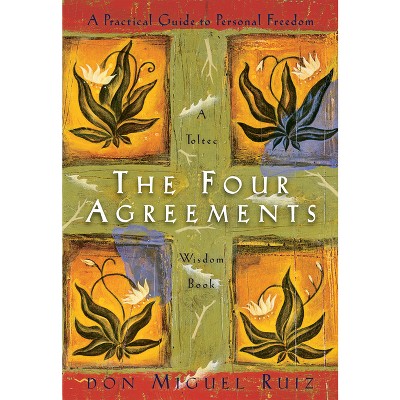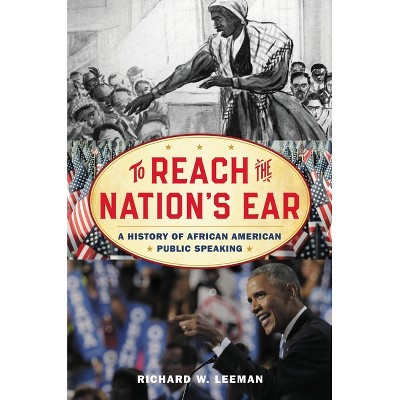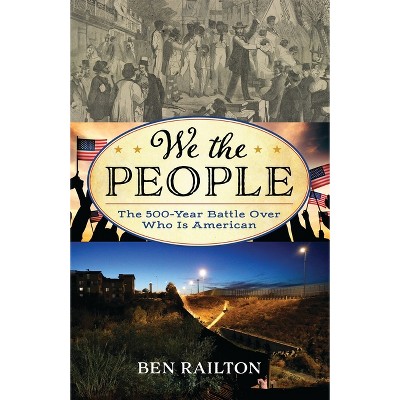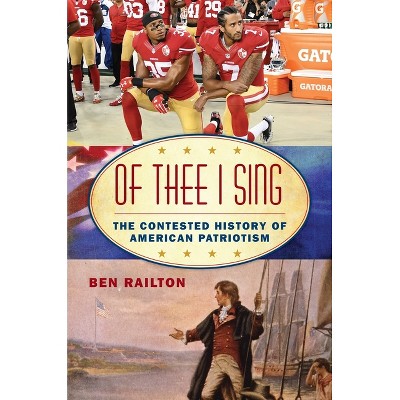Popular Justice - (American Ways) by Manfred Berg (Paperback)

About this item
Highlights
- Manfred Berg traces the history of lynching in America from the colonial era to the present.
- About the Author: Manfred Berg is the Curt Engelhorn Professor of American History at the University of Heidelberg.
- 232 Pages
- Social Science, Violence in Society
- Series Name: American Ways
Description
About the Book
Manfred Berg traces the history of lynching in America from the colonial era to the present. Berg focuses on lynching as extralegal communal punishment performed by "ordinary" people. He confronts racially fragmented historical memory and legacies of popular justice to help th...Book Synopsis
Manfred Berg traces the history of lynching in America from the colonial era to the present. Berg focuses on lynching as extralegal communal punishment performed by "ordinary" people. He confronts racially fragmented historical memory and legacies of popular justice to help the reader make better sense of lynching as part of American history.Review Quotes
Popular Justice is a long overdue overview of the history of mob violence in American history. [Manfred Berg's] impressive study chronicles not only the deservedly well known history of extralegal violence against black victims but also the less familiar collective violence that targeting whites, Mexicans, Native Americans, and the Chinese. Berg's survey simultaneously engages in a thought-provoking discussion of critical issues in lynching scholarship while also providing an accessible summary of the history of mob violence in the United States.
Berg traces lynching's U.S. history, starting with the Colonial era and coming to the present, addressing the characteristics of this brutal punishment undertaken by 'ordinary' people.
Even the ancient Greeks saw the danger that democracy and other forms of popular government could degenerate into mob rule. In this thought-provoking and disturbing history of lynching from colonial times to the present, Berg, a history professor at the University of Heidelberg, draws a clear connection between lynching and a perversion of democratic impulses. Berg views racism as a fundamental component of many lynchings, particularly after the Civil War, when many white southerners rejected the authority of various Reconstructionist state and local governments. African Americans were the most frequent victims, but other racial and ethnic minorities were often targets. Obviously, simple mob blood-lust plays a role, but at a deeper level, Berg asserts that the perpetrators of lynchings often see themselves as antiauthoritarian avengers, representing the popular will and standing in opposition to an 'illegitimate' state power that cannot be trusted to act swiftly or justly. This is a well-written examination of the history and psychology of this particular form of mob violence.
Comprehensive yet concise, this is a superb history of lynching from its colonial origins to contemporary hate crimes. While giving due emphasis to white violence against African Americans, Berg conclusively demonstrates that mob violence afflicted other racial and ethnic minorities, not only in the South but across the entire nation.
Manfred Berg has written the most comprehensive overview to date on the history of mob violence in the United States. Popular Justice provides an intelligent synthesis of the extensive scholarship on lynching that is perfect for classroom use.
Manfred Berg's Popular Justice is a landmark contribution to the literature on American violence. This deeply researched, cogently argued book is the first modern single volume scholarly study of the practice of lynching in American history. Encompassing within its analysis all key dimensions of the historical development of mob violence in the United States, Popular Justice will be of great aid to all interested in the history of American lynching.
Popular Justice explores lynching from the colonial period to the present, closing with emphasis on the societal changes that contributed to the demise of extralegal violence....Recommended.
To the terrible tragedy of mob violence Manfred Berg brings vivid detail and narrative, capturing the sweep of violence across all regions and every ethnic group, a comprehensive account.
About the Author
Manfred Berg is the Curt Engelhorn Professor of American History at the University of Heidelberg. He is author of, among other books, The Ticket to Freedom: The NAACP and the Struggle for Black Political Integration.Shipping details
Return details
Trending Non-Fiction











